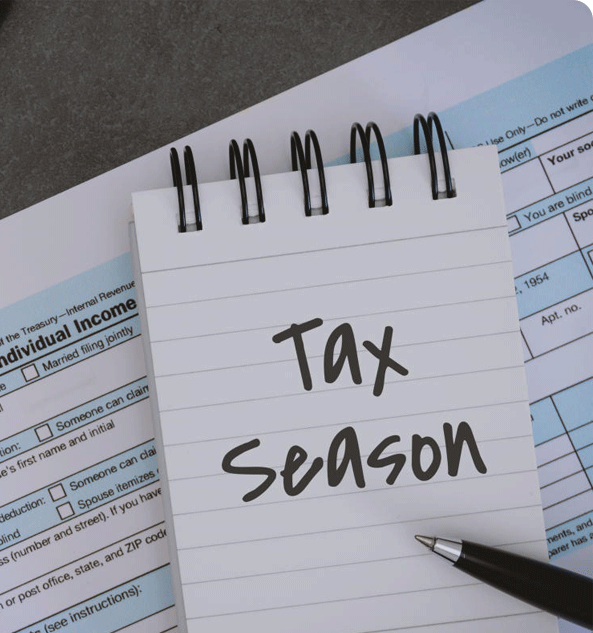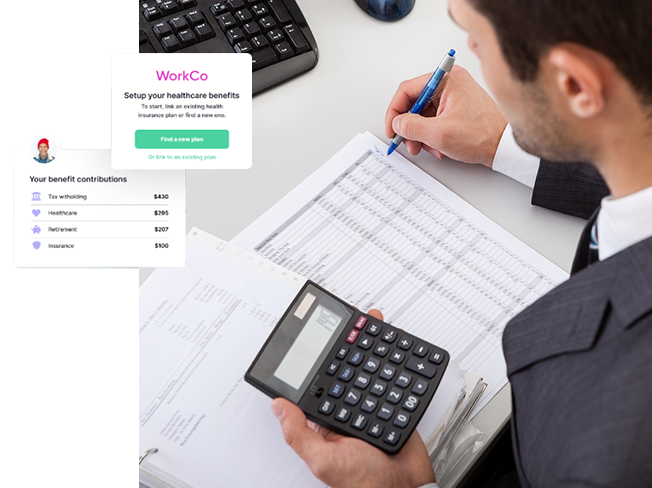
Miami-Dade County Taxes 101 – Your Ultimate Resource to Understand Property Tax
A vibrant and diverse region, Miami-Dade County is situated in the heart of Florida. It is known for its stunning beaches, cultural richness, and established business community. However, this blog is not about any of that. In this piece, we will talk about Miami-Dade County Taxes.
Understanding local taxes is important for everyone, especially those who reside in this county or conduct business within its boundaries. Whether you’re a homeowner looking to manage your property taxes more efficiently or a business owner seeking to optimize your tax strategy, this blog is your comprehensive guide.
As tax season approaches, we aim to empower you with the knowledge and resources needed to make informed financial decisions, take advantage of available tax relief, and understand the role of taxation in this county. Let’s discuss the intricacies of Miami-Dade County taxes and help you make the most of your financial opportunities.
How Much Are Property Taxes in Miami-Dade County?
Property taxes are a significant part of homeownership in Miami-Dade County, and understanding how they work is crucial for both current residents and potential homebuyers. We have made it easier for you to understand, so let’s start.
Property Tax in Miami-Dade County – What You Need to Know
1. The Typical Property Tax Amount
On average, a Miami-Dade County home with a price tag of around $269,600 would have a property tax bill of about $2,756 each year. The government gathers $462 for every $100,000 of a property’s taxable value.
2. How Much We Pay as a Slice of Our Home’s Value
Now, here’s the percentage part. On average, Miami-Dade County takes about 1.02% of the value of a home as property tax.
Fun Fact: Miami-Dade County’s Place in the National Ranking
Miami-Dade County stands out when it comes to property taxes. Its citizens are in the top 210 counties out of more than 3,100 counties in the United States with the highest median property taxes.
3. Property Tax vs. Income
The average property tax bill the homeowners pay each year is about 4.67% of their yearly income. The county ranks 111th in the country for property taxes compared to the income.
How Miami-Dade County Compares to Other Florida Counties
Miami-Dade County takes the crown for the highest property tax in Florida, collecting about $2,756 each year. Meanwhile, Dixie County, way up north, has the lowest property tax in the state, with an average of about $503 annually (0.51% of their home’s value).
So, there you have it, a simple breakdown of property taxes in our beautiful Miami-Dade County. Remember, these numbers can vary, but this gives you a good idea of what to expect.
Worried About Tax Season?
Say goodbye to stress and let us manage your
numbers with meticulous care.
How to Pay Miami-Dade County Taxes?
Tax season in Miami-Dade County, just like everywhere else, can seem a bit daunting. If you need assistance in tax preparation and planning, you can always get help from the experts. Let’s break down the tax preparation process:
1. Gather Your Tax Documents
First things first, you’ll need all the important tax-related papers. These might include W-2 forms (if you have a job), 1099 forms (if you’re self-employed), or any other documents that show your income and expenses. If you own a home, you’ll need your property tax information too.
2. Stay Organized
Being organized is key to a smooth tax season. Create a system that helps you keep all your documents in one place. You can use folders, envelopes, or even digital tools to store and organize your paperwork. This will save you time and reduce stress when you start filling out your tax forms.
3. Know the Deadlines
The tax season has specific deadlines you need to be aware of. In the United States, the usual deadline for filing federal income taxes is April 15th. However, it can change, so it’s essential to double-check the exact date each year. Also, don’t forget about state and local tax deadlines, which might differ from federal ones.
4. Get Help if Needed
If you’re not confident about doing your taxes on your own, don’t hesitate to seek help. You can consider using tax preparation software or consulting with a tax professional. They can guide you through the process, ensure you’re taking advantage of all eligible deductions and credits, and help you avoid common tax pitfalls.
5. Consider Tax Credits and Deductions
Miami-Dade County might offer local tax credits and deductions that can reduce your tax bill. These might be related to things like education expenses, energy efficiency improvements, or even supporting specific causes. Investigate these potential savings to lower your overall tax liability.
6. File Your Taxes
Once you’ve gathered all your documents, stayed organized, and understood your tax situation, it’s time to file your taxes. You can do this by paper or online, depending on your preference. If you’re due a refund, filing electronically usually gets you your money faster.
Tailored Solutions to
Your Business
Needs
We believe that each business is unique, which is
why we tailor our bookkeeping services to meet your
specific needs. From companies to established businesses,
we have your back!
Contact-Us
Tax Relief Programs and Exemptions
In Miami-Dade County, there are various tax relief programs and exemptions designed to assist specific groups of residents, homeowners, and businesses. These programs are put in place to help reduce the financial burden of taxes for eligible individuals and organizations. Here’s a closer look at some of the key tax relief initiatives:
| Program/Exemption | Description |
|---|---|
| Homestead Exemption | A popular exemption for homeowners that reduces the taxable value of their primary residence, resulting in lower property taxes. |
| Senior Citizen Exemption | Provides property tax relief to senior citizens (typically 65 and older) who meet specific income requirements, reducing their tax liability. |
| Disabled Person Exemption | Similar to the senior citizen exemption, this program benefits disabled individuals by lowering property taxes based on specific criteria. |
| Veterans Exemptions | Various exemptions are available to veterans with disabilities, widows/widowers of veterans, and combat veterans, providing relief from property taxes. |
| Agricultural Classification | Designed for qualifying agricultural properties, this program allows for reduced property tax rates to support the farming and agricultural industry. |
| Non-Profit Exemptions | Registered non-profit organizations may be eligible for property tax exemptions if they meet the necessary criteria, reducing their tax liability. |
Lighten Your Load with
Affordable BookKeeping
Packages
We offer competitive packages that won’t break the bank,
and up-front pricing so you know exactly what you’re getting
as your return on investment.

These are just a few examples of the tax relief programs and exemptions available in Miami-Dade County. It’s essential to note that eligibility criteria and benefits can vary, and the specifics may change over time. To explore the most up-to-date information on these programs and exemptions or to inquire about additional opportunities, it’s advisable to contact the Miami-Dade County Property Appraiser’s Office or visit their official website.
Understanding and taking advantage of these programs can significantly impact your tax liability, offering valuable savings and financial relief to qualified residents, homeowners, and businesses in the county.
Conclusion
As we wrap up our journey through Miami-Dade County taxes, we hope you’ve gained valuable insights that will help you understand the taxes with confidence. Understanding local taxes is not just about numbers and forms; it’s about making informed decisions that impact your financial well-being and the community.



